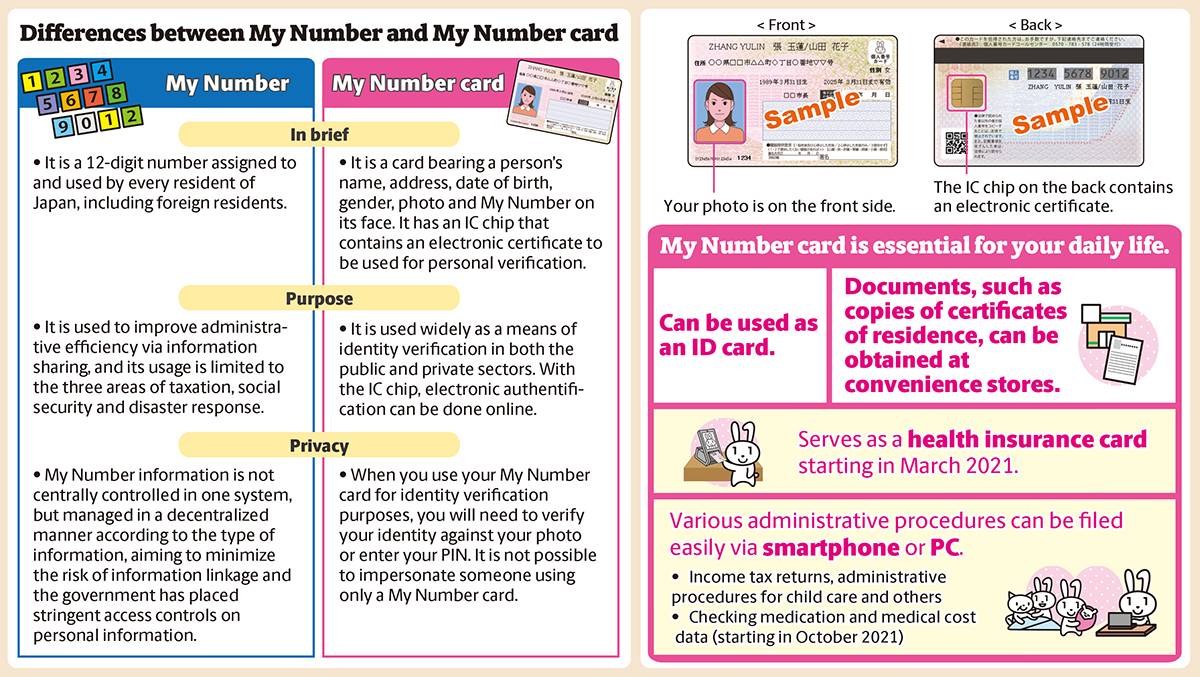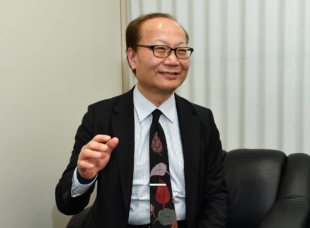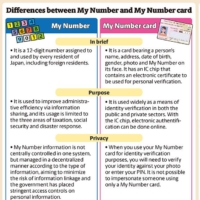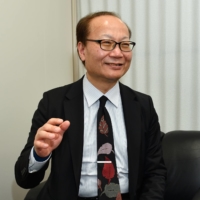This is the second article in a Japan in Action series, showcasing key policies of the Suga administration.
Japan’s central and municipal governments, as well as the private sector, have traditionally relied heavily on paper documents for administrative procedures. But the coronavirus pandemic has brought to light the need for a drastic shift toward digitalization to swiftly implement various policies and administrative tasks regardless of their locations.
Soon after he took office in September, Prime Minister Yoshihide Suga has made advancing digitalization in government a top priority, and the government is gearing up to establish a digital agency that will serve as the control tower guiding the digital transformation. The government has also pledged to better utilize the social security and tax number system dubbed My Number (Individual Number) and expand the use of My Number cards.
“People can complete all kinds of administrative procedures without going to a government office. Those living in rural areas can do the same work as those in large cities by teleworking. People in local communities can receive medical care and education of the same quality as those in large cities,” Suga said in a policy speech delivered in October. “We will realize such a society.”

The My Number system allocates a 12-digit number to every resident of Japan to be used for matters related to social security, taxation and disaster response to improve administrative efficiency and accuracy via information sharing. Since the number remains the same even after marriage, moving or changing jobs, it serves to identify an individual throughout that person’s life.
The My Number card serves as identification, bearing the person’s number and photo. It likewise carries an IC chip that contains an electronic certificate and basic information, such as the individual’s name, address, date of birth and gender. The My Number card can be used as an ordinary identification card to be presented in person, as well as digital certificates when accessing various public- and private-sector services online.
My Number’s impact
Since it was launched in 2015, the My Number system has dramatically streamlined administrative procedures by linking different government bodies for the sharing of tax and social security personal information.
For example, people who apply for the child allowance or for a place in a nursery school no longer need to submit tax or residence certificates. This also means that municipal government officials no longer have to issue documents to process such applications.

According to the data from the Ministry of Internal Affairs and Communications, online exchanges of administrative information, such as tax documents, between different municipalities and government agencies through the My Number system have jumped as more data, including that related to pensions, were linked with the system. Between April 2020 and March 4, a total of 135.46 million cases have been handled, which is 2.64 times more than the 51.36 million cases recorded in the previous fiscal year.
“Imagine if we didn’t have this system. Municipal government officials would have to ask people to bring in necessary paper documents to apply for various public services, but no such cumbersome efforts are required anymore,” Haruki Mukai, general manager of the Social Security and Tax Number System at the Cabinet Office, said in an interview. “People who seldom use social security services may not have noticed it, but the My Number system has already been widely adopted to make public services much more accessible to people.”
Expanding usage
It remains a challenge, however, to increase usage. Since the introduction of the My Number card in January 2016, about 33.4 million people, or only 26.3% of the population, had been issued one as of March 1, according to the information published by the Ministry of Internal Affairs and Communications.
One reason behind the low rate is that many people are not aware of the benefit of having a card, even though they are now used in both the public and private sectors. Instead of providing paper documents, My Number cardholders can now use online identity authentication for various private-sector services, such as opening a bank account online.
The use of the My Number card continues to evolve. From this month, people will be able to use their My Number card as their health insurance card. In October, cardholders will be able to view their medication and medical costs data via the government-run Mynaportal website, which provides individual information related to My Number. The card will also be integrated with driver’s licenses at the end of fiscal 2024.
“If the card serves as a health insurance card, it will be connected electronically with medical institutions, which will enable patients to see their medication records,’’ said Mukai, who has been spearheading the program for implementing the My Number system.
Ensuring privacy
Some people mistakenly believe that the My Number card carries their tax, pension or other highly private information, but it does not. The IC chip embedded in each card holds the information on the face of the card and an electronic certificate. When accessing services via the My Number card, an electronic certificate in the IC chip first identifies the user and then calls up personal information for the services stored in each public or private entity. Information of My number is not used for this authentification process, and to use the electronic certificate, a PIN or facial recognition is required.
To ensure privacy protection, use of the My Number system is strictly limited to only that specifically allowed by law. The government has also decentralized management of and placed stringent access controls on such personal information. My Number cardholders can also check the record of their personal information exchanged within the different government bodies via Mynaportal.
Digital transformation
To truly make Japan a sustainable society amid an aging population, Mukai said digital transformation is essential.
“As the population ages and the social cost of public services increases, digital reforms in the areas of taxation, pensions and health care are indispensable to maintain public services,” Mukai said.
“It’s important to build the necessary digital infrastructure now, so that in 10 or 20 years, young people who are ‘digital natives’ will not be left behind their peers in other countries and be active in various fields in society.”
This series is sponsored by the government of Japan.





